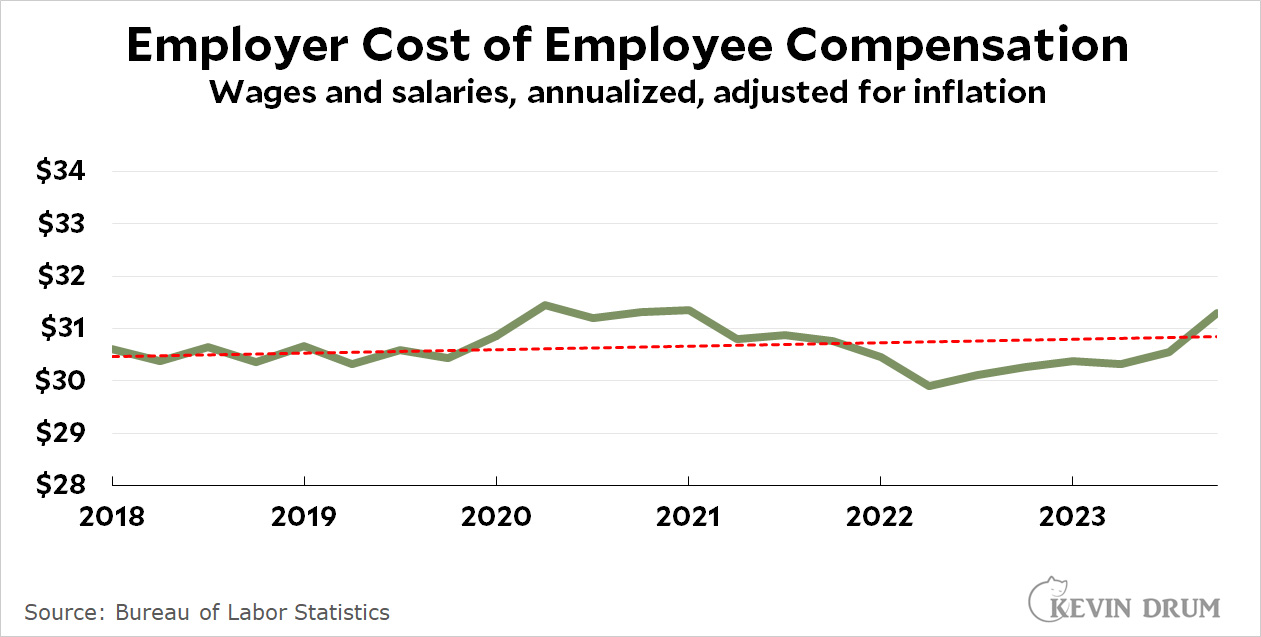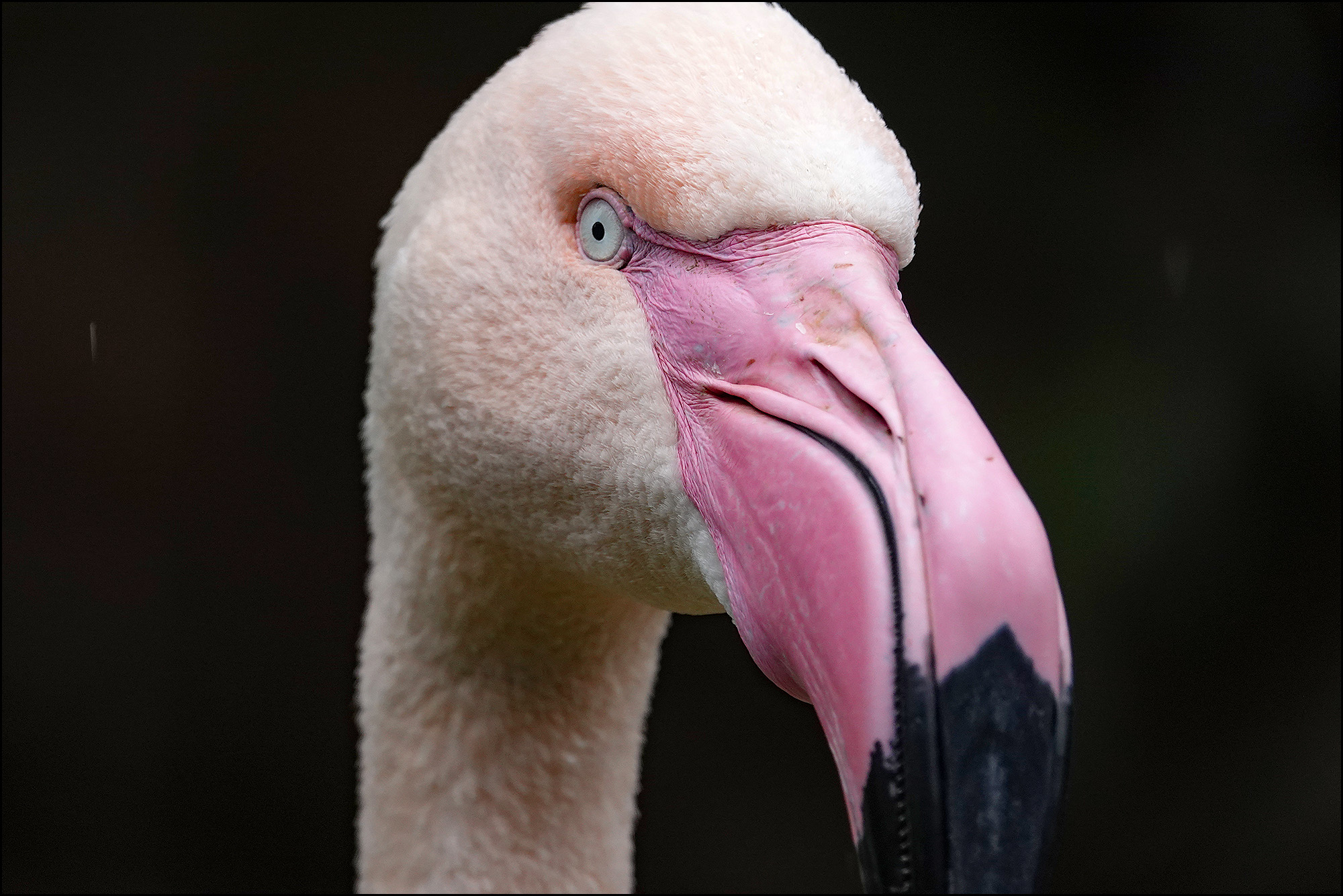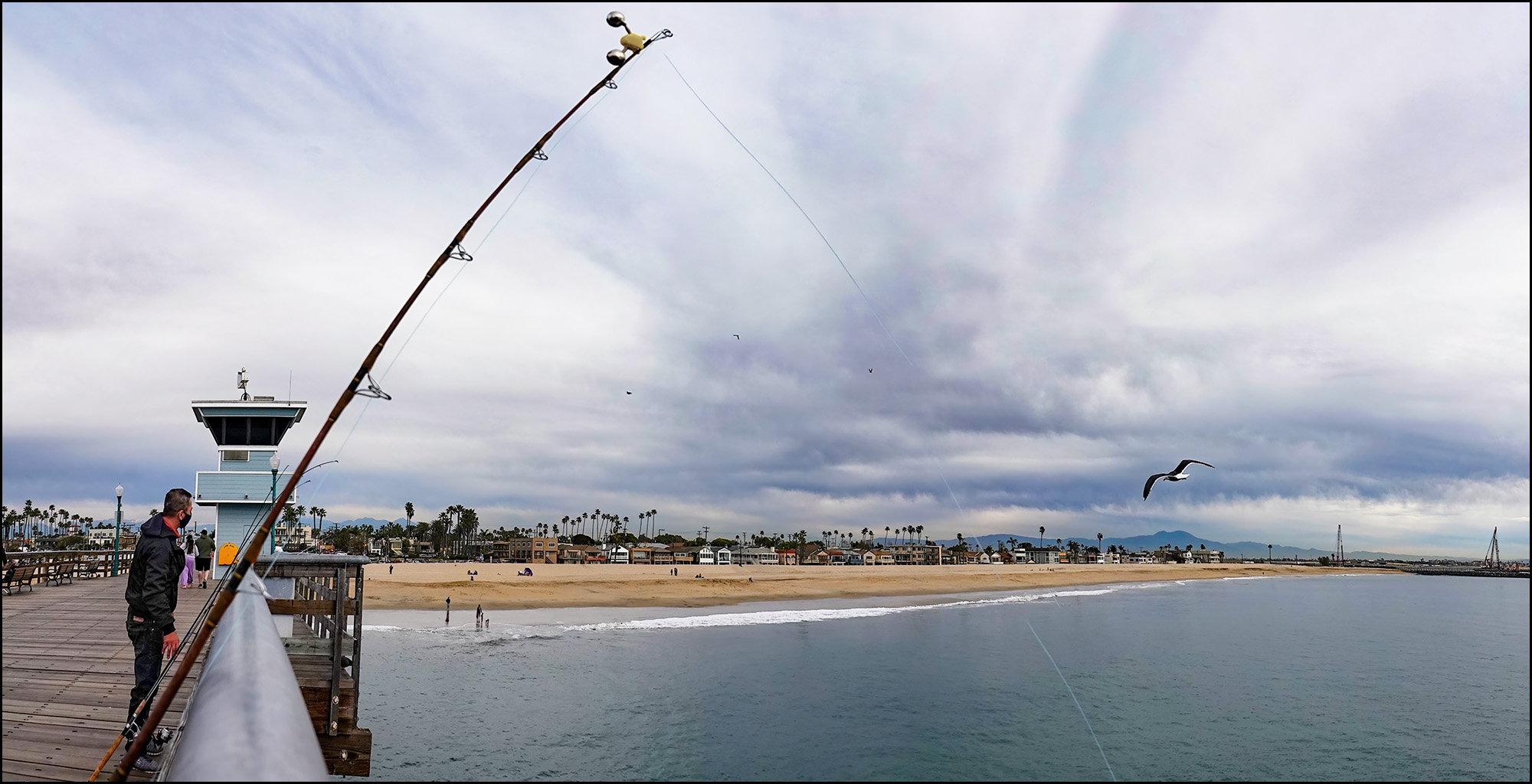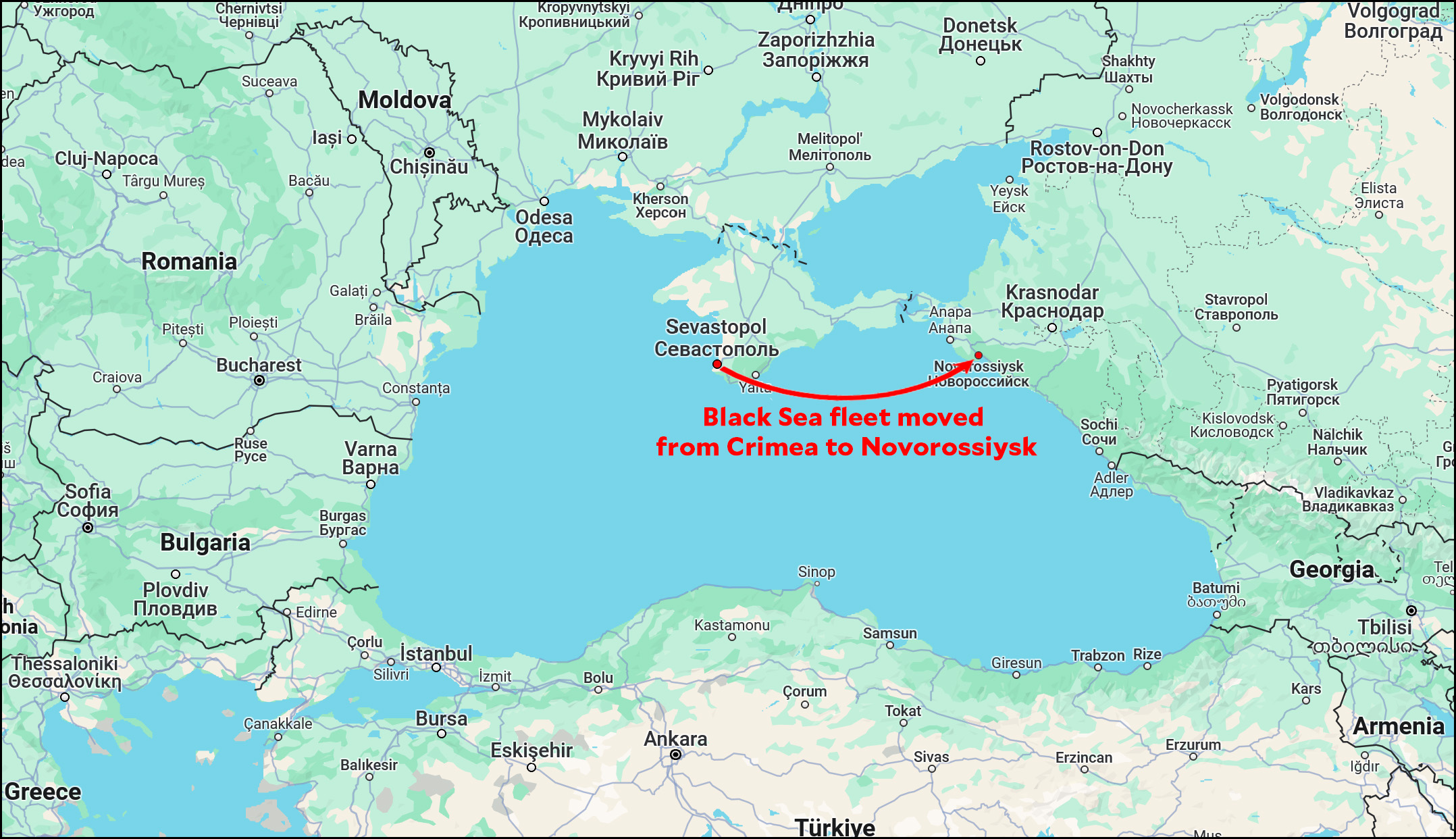Denmark has given us Legos, Earth Shoes, Danish pastry, Google Maps, the Egg chair, Scanpans, Carlsberg beer, C++, Christmas plates, the international wheelchair symbol, open-faced sandwiches, and Ozempic. Clever people, those Danes.
Month: March 2024
Lunchtime Photo
Housekeeping update
Comments are back up! Apparently some kind of noaccess code got mysteriously added to the site, but Bluehost deleted it and now everything is fine.
Elon Musk says Don Lemon is a Jeff Zucker sock puppet
After being let go from CNN, Don Lemon cut a deal with Elon Musk for a show on Twitter. Lemon's first episode was an interview with Musk, after which the deal was abruptly canceled. Why?
His approach was basically just “CNN, but on social media”, which doesn’t work, as evidenced by the fact that CNN is dying.
And, instead of it being the real Don Lemon, it was really just Jeff Zucker talking through Don, so lacked authenticity.
All this said, Lemon/Zucker are…
— Elon Musk (@elonmusk) March 13, 2024
I don't really care whether Twitter hosts a Don Lemon show. But what a weird excuse for killing a deal. There's something wrong with Elon's brain.
Worker pay increased 10% last quarter?
Among the various ways of estimating worker pay, one of the most accurate is the BLS calculation of employer costs. This is released quarterly, and in Q4 of 2023 wages and salaries for civilian workers increased by a whopping 10%:
 From Q3 to Q4, wages increased 3.1%. Adjusting for inflation and then annualizing the quarterly change produces a 10% increase on an annualized basis.
From Q3 to Q4, wages increased 3.1%. Adjusting for inflation and then annualizing the quarterly change produces a 10% increase on an annualized basis.
Total compensation, including benefits, was up 11.2% on the same basis.
This is.......a little hard to take in. Unless I slipped a digit that's a huge increase, and it's way bigger than the increase in the Employer Cost Index over the same period (about 1%). I'm not sure what to make of this.
Banning TikTok might very well make things worse
Today the House passed a bill to effectively ban TikTok unless it's acquired by an American company:
Republican leaders fast-tracked the bill through the House with limited debate, and it passed on a lopsided vote of 352 to 65, reflecting widespread backing for legislation that would take direct aim at China in an election year.
I know I'm talking my book here, but I'm skeptical of any bill that passes by a huge margin like that. I mean, Democrats and Republicans couldn't muster 352 votes for a Mother's Day resolution these days, but they're all willing to ban TikTok? This smacks of panic and election year pandering.
I wonder how effective it would be anyway? The bill would ban TikTok from app stores or from being hosted on US web servers. That's a big blow. But it wouldn't do anything about the gazillion people who already have the app, and moving TikTok to, say, Chinese servers wouldn't be any big deal. Future users could either download the app manually—which is tricky but hardly impossible—or use a web version. This is obviously not ideal for TikTok, but it would probably work.
If this happened, it would make things even worse from a national security perspective. TikTok would have no incentive to keep US data in Texas and no incentive to host its service anywhere but China. And teens might actually be attracted to TikTok even more once it becomes forbidden fruit.
We'll see what the Senate does. But I do wish that Congress had a little more faith in the American system of democracy and open debate. Even if TikTok is subtly promoting Chinese propaganda, what do you think is the best way of fighting it? The Chinese system of banning and censoring, or the American system of letting everyone fight it out in the marketplace of ideas? Sign me up for the latter, please, and not just because of a knee-jerk love of all things American. I genuinely think that in the long run our way of doing things is a lot more productive than the Chinese way.
Ukraine has sunk a third of Russia’s Black Sea fleet
Did you know that Ukraine has destroyed a third of Russia's Black Sea fleet, nearly half of that just since September? I didn't:
The victories have been all the more surprising because Ukraine does not have a traditional navy or a fleet of warships. Instead, Ukraine has used sea drones and missiles to attack Russian ships.
U.S. officials believe Ukraine has sunk 15 Russian ships in the past six months.... As a result of the attacks, Russia has moved its fleet back from Ukraine’s coast and out of the western Black Sea.
....“Ukrainian grain is now again flowing through the Bosporus to Africa and China, which are Ukraine’s traditional markets,” [Radoslaw] Sikorski told reporters in Washington at a breakfast hosted by The Christian Science Monitor.
Apparently the Russians have virtually no defense against the irregular Ukrainian attacks. That's something to think about when you ponder the future of conventional navies.
Conservative judge shopping finally gets banned
You're aware of the practice of judge shopping, right? Most often it's used by conservatives, who file suits in specific locations where they're guaranteed to get a wingnut judge who will issue a nationwide injunction based on even the flimsiest evidence. Favored judges include Matthew Kacsmaryk (mifepristone, "Remain in Mexico"); Drew Tipton (immigration); Mark Pittman (student loans, minority businesses); Reed O'Connor (Obamacare, gun control); and Terry Doughty (COVID vaccines, Biden social media ban). All are in the 5th Circuit, where their rulings are likely to be upheld on appeal; all but Tipton are Trump appointees; and all but Doughty are in Texas.
The reason judge shopping works is that there are some jurisdictions with only one, or maybe two judges. File in the right place and you're nearly guaranteed to get the Trump judge of your dreams. Until today:
Judges themselves have moved to crack down on that tactic by adopting a new policy that mandates that all federal suits aimed at invalidating a national policy or statute or a state law or executive order be randomly assigned among judges throughout the judicial district where the case is filed...rather than being retained in the particular geographic division where they are filed and assigned only to the judge or judges in that division.
CNN provides an example of how this works:
For instance, the abortion drug case [mifepristone] was filed in the Amarillo Division of US District Court of the Northern District of Texas, where US District Judge Matthew Kacsmaryk...is assigned to hear all cases under local rules.
Under the new policy, in the future, such a case would go through the random selection process for the entire district court — which has 11 active judges and five senior judges — thus significantly lowering the odds that it would be assigned to Kacsmaryk.
Filing your right-wing lawsuit in Texas will still give you a better chance of winning, but it no longer guarantees that you'll get one of the rubber stamp judges. Progress.
POSTSCRIPT: It's worth a quick note that the ban wasn't the brainchild of wild-eyed liberals. It was spearheaded by Jeffrey Sutton, chief judge of the 6th Circuit, who was appointed by George W. Bush and has been responsible for several very conservative rulings. Even the right-wingers finally got embarrassed by the antics of the Texas judges.
Is TikTok an existential threat to American society?
Hum de hum. A couple of reasonable folks have recently weighed in on the question of whether TikTok should be banned in the US. The first is from Noah Smith, who says it should be and points to two pieces of concrete evidence: (1) a study showed that TikTok suppresses videos China doesn't like, and (2) TikTok's official moderation policy is to censor content China doesn't like.
This is pretty weak tea. The suppression study is badly flawed because it doesn't compare TikTok to other social networks in the same years. The moderation story acknowledges that TikTok's policies are not directly aimed at anything specific to China and, in any case, are no longer in use. What's more, TikTok has a longtime goal of minimizing political content entirely because they think it's bad for business.
So there's very little there. Noah also addresses the issue of TikTok surveillance, but again, there's virtually no evidence of anything significant. Nor could there be. TikTok currently keeps all data on American users in Texas, where it's unavailable to Chinese authorities.
Matt Yglesias takes a different approach. He says China is bad and we shouldn't really require tons of evidence about this:
Here’s the analogy I like to use. It’s 1975 and a state-owned Soviet firm wants to buy CBS. What happens? Well, what happens is they wouldn’t be allowed to.... There would be no detailed factual analysis or demand for gold standard evidence that a Soviet-owned television statement might do Moscow’s bidding or that television is capable of influencing public opinion. We’d reject the idea out of hand. And rightly so, because the downsides would be very clear, and the upside minimal.
....We don’t need to wait for open and shut evidence that the platform is being censored or used to deliberately promote propaganda. We should just have a very strong presumption that it will be used in the way and act accordingly.
This gets dicey very fast. If no evidence is required, it's a little hard to argue the other side, isn't it? Just for a bit, then, let's look at some evidence.
First, about 20% of adults watched Walter Cronkite back in the day. Today, about 5% of adults get news from TikTok—most of it nonpolitical. There's really no comparison.¹
Nor is anyone suggesting that we allow China to buy an American news platform. The question is only whether Chinese platforms should be allowed to distribute content in the US. In broad terms this is an issue unique to the internet era, but it's still worth pointing out that the Soviet Union was allowed to distribute news during the Cold War. TASS had several bureaus in the US and Soviet propagandists famously visited the US frequently to provide "their side of the story" to American teens.
Don't get me wrong: there's obviously not much comparison between a huge Chinese social network today and a rarely-used Soviet wire service fifty years ago. At the same time, how much comparison is there between the Soviet Union of the Cold War era and the China of today? China is plainly an authoritarian country that brutally censors content internally and plays hardball against its critics outside the country. But we trade with China; we allow lots of Chinese students in our universities; there's extensive two-way tourism with China; and China is not generally an expansionary military threat.²
As near as I can tell, the threat of China using TikTok to surveil American teens is close to zero. User data on Americans is held on American territory and there's not really much that China could do with it anyway.
On the propaganda side the evidence of a threat is nearly as meager. TikTok probably does try to avoid pissing off the CCP, but its actual level of suppression or censorship seems to be pretty limited and pretty low. What's more, TikTok is just one small part of a massive modern infotainment industry, not one of three monopolistic TV networks like we had in the '60s.
So I'm still stuck in the same place. I really, really try not to get caught up in moral panics, which have a pretty appalling track record. TikTok strikes me as an almost dictionary example of a moral panic that we'll look back on in ten years and wonder what the hell we were thinking. On the threat of China more generally, I don't like the Chinese government much but I'm not panicked either. They're a geopolitical bad actor but not an existential threat. For now, anyway, I don't feel the need to ban a social network just because it's Chinese owned.
¹The number is obviously higher for teens, probably around 20% or so. But again, it's mostly nonpolitical news consumption.
²It's a military threat, but mostly in places on its border that it's claimed for a long time: Taiwan, Tibet, the South China Sea, and a couple of smallish territories that it disputes with India.
Lunchtime Photo
It's time for some zoo pictures. The LA Zoo, for some reason, requires you to walk several hundred yards up a "promenade" after you get your ticket but before you get to the zoo itself. This is boring because there's very little along the way except for a few little pop-up shops.
But. There is one thing: flamingos. So today you get the entrance to the zoo and a flamingo captured along the way up the promenade. Next week we'll start in on the zoo proper.




